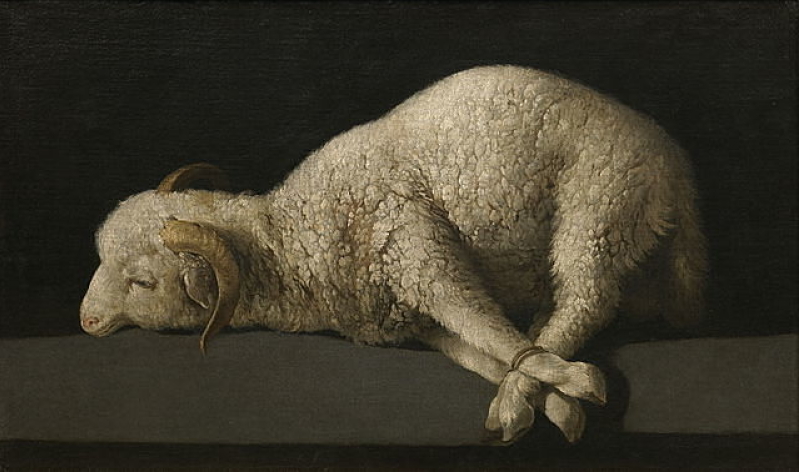
The following excerpt comes from Ravi Zacharias's newly released book Jesus Among Secular Gods coauthored with Vince Vitale.
It was years ago when I was speaking at an openly and avowedly atheistic institution that I was fascinated by a questioner who asked what on earth I meant by the term God. The city was Moscow; the setting was the Lenin Military Academy. The atmosphere was tense. Never had I been asked before to define the term in a public gathering. And because I was in a country so historically entrenched in atheism, I suspected the question was both hostile and intentional. I asked the questioner if he was an atheist, to which he replied that he was. I asked him what he was denying. That conversation didn't go very far. So I tried to explain to him what we meant when we spoke of God.
It is fascinating to talk to a strident atheist and try to get beneath the anger or hostility. God is a trigger word for some that concentrates all his or her stored animosity into a projectile of words. But as the layers of their thinking and experience are unpacked, the meaning of atheism to each one becomes narrower and narrower, each term dying the death of a thousand qualifications. Oftentimes, the description is more visceral and is discussed with pent-up anger rather than in a sensible, respectful discussion. More than once I have been amazed at the anger expressed by members of the atheist groups at one or other of the Ivy League schools in the United States to which I have been invited to speak, anger that I was even invited and that I had the temerity to address them.
In theory, the academy has always been a place where dissent serves a valuable purpose in helping thinking students to weigh out ideas and make intelligent choices. And, dare I say, had I been a Muslim speaker, there would have been no such dissent as I faced. Evidently, being able to instill fear in people has a lot to do with how much freedom of speech you are granted. But alas! For some, at least, civil discourse is impossible. To her credit, at the end of a lecture, one senior officer in one club stood up and thanked me, a veiled apology for the resistance vented before the event. I did appreciate that courtesy.
This unfettered anger on the part of some is quite puzzling to me. I was raised in India where I was not a Hindu and, in fact, never once gave it any serious consideration. For that matter, I'm not sure if I even really believed in God. I was a nominal Christian but never gave that much thought, either. Most of my friends were either Hindu or Muslim or Sikh, with a few others of different faiths. I never recall feeling any anger or hostility toward those who believed differently than me, no matter how ludicrous their beliefs may have seemed to me. Nor do I remember ever being on the receiving end of such anger and hostility because I did not have the same belief.
But the likes of Richard Dawkins are renowned for their bullying and mocking approach toward opposing views, an attitude from an academic that makes one wonder what is really driving such an intense temperament. A questioner at a gathering in Washington, DC, once asked Richard Dawkins how one should respond to a person who believed in God. "Mock them," he actually replied. "Ridicule them." When someone at an event asked me what I thought of that response, I reflected that, were Dawkins to practice that same method in Saudi Arabia, chances are he would not need his return ticket. One thing is for sure-he would at least find out that not all beliefs in God are similar and not all imperatives, equal.
Need I add, not all atheists have the same disposition. In fact, many find the hostility of the new atheists an embarrassment. I have met many a cordial conversationalist who is atheistic in his or her belief, and we've had the best of conversations. Many have remarked that they have been able to take only so much of Dawkins and his followers and then stopped even reading them. Whatever worldview we espouse, dialogue and debate should take place with civility and courteous listening. But our times make that ideal so elusive. Holding a supposedly noble belief and reducing it to ignoble means of propagation makes the one who holds that belief suspect.
To be sure, many in the so-called "religious" category have provoked strident responses. The pulpit can sadly be a place of bullying people into guilt and remorse and other emotions that make them want to escape from the voice hammering away at them, to say nothing of the anti-intellectualism among Christian ranks that brands even a hint of philosophy or science heretical.
History has taught us to beware of extremists in any camp that sacrifice cordial conversation at the altar of demagogic enforcement. Views and opinions are aplenty in our world of tweeting and Instagram, but civil discourse is rare. And rarer still is the ability to defend one's beliefs with reason and experience. But we do well to examine the differences among secular belief systems (that are, in fact, also religions). We do well to examine where these differences really lie. I continue to find that the Judeo-Christian worldview has the most coherent answers to the inescapable questions of life that we all have, regardless of our beliefs.
Ravi Zacharias is founder and chairman of the board of Ravi Zacharias International Ministries.
For further information or to read the remainder of this chapter, click here to download the first chapter for free and receive a discount code giving you 52% off the retail price.
Reprinted by permission of Ravi Zacharias International Ministries, www.rzim.org.







